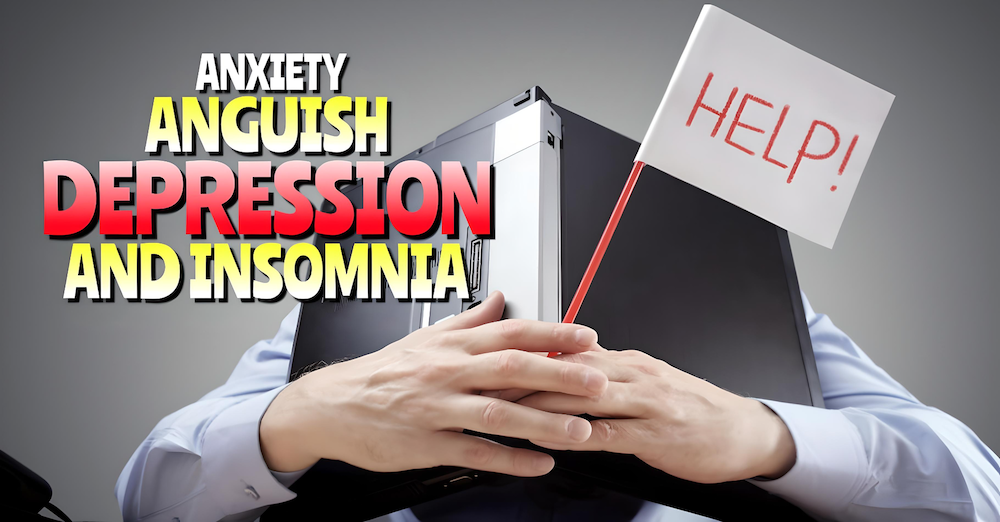
One may identify as a “workaholic” when they engage in excessive work, while another may experience “burnout” due to the accumulation of stress and fatigue. Until now, there was no term to describe the need to achieve perfection at work, driven by ambition, self-demand, and perfection.
The name: “Sisyphemia”, a word created by the French philosopher Albert Camus for describing the human condition of having to perform repetitive and meaningless tasks.
The word too refers to the myth of Sisyphus, a character from Greek mythology whom the gods condemned to carry out an absurd and endless task. Sisyphus was condemned to push a large stone uphill, but every time he was about to reach the top, the stone would fall, and he would have to start all over again.
“Sisyphemia” describes an activity or effort that seems endless and futile. Despite continuous attempts, a definite or satisfactory result is never obtained. “Sisyphemia at work” is feeling trapped in a monotonous and repetitive work routine, like the punishment of Sisyphus in the Greek myth. A feeling that leads to frustration, demotivation, and chronic stress that leads to illness, including mental illness.
Symptoms of sisyphemia. Physical and emotional effects of not meeting your professional goals. The feeling of imperfection, even when you have done your best. Obsession with to-dos and constant thoughts about how to resolve them. Poor ability to control stress or enjoy rest. Anxiety, anguish, and depression. Physical aches and pains such as headaches, stomach aches, etc. Insomnia and difficulty resting. The constant need for approval and recognition at work. Low self-esteem and doubts about identity without work.
Fatigue is one of the most common symptoms of sisyphemia, caused by the obsession to work to the limit and over the hours needed to achieve perfection. Stress and mood swings are some of the emotions that may be affected. In addition, difficulties in performing daily tasks, sleeping problems, and a weakened immune system may occur.
The consequences can have a prolonged impact and impact both psychologically and physically in various ways. For example, they can result in an increasingly severe deterioration of health due to a weakened immune system. Lack of motivation and loss of interest in work can psychologically impact the individual, which could lead to the end of their career.
Individuals diagnosed with sisyphemia cannot disconnect from work during their days of rest or when they lie in bed. Their minds become automatic, and they often think about tasks that need to be done, how they feel about themselves, and what they need to do at work. This results in prolonged work hours, inadequate sleep, reduced leisure time, and social isolation in favor of work. Self-demand and perfectionism drive them to take more stimulants like caffeine or anxiolytic to meet self-imposed standards.
––––––––––
It is undeniable that today, capitalism has achieved significant dominance as an economic system. This leads us to face a constant and demanding need for labor production. The difficulty of balancing time off and work is due to the amount of unfinished business that always seems to continue.
With the hyper-connectivity, we are always available through apps such as WhatsApp or even with mail on our cell phones. It is difficult to draw a boundary between work and personal time, which is also a source of stress for many people.
While it is challenging to eliminate work stress, there are practical solutions to manage it better. For example: Don’t send emails or text messages outside of office hours. It is common practice to receive emails from your superiors at midnight during the week or even on weekends. 84% of stressed people say that receiving an email or message from a boss outside working hours generates a lot of stress.
Illnesses and disorders at work are due to physical, psychosocial, and organizational exposures. In particular, mental health, musculoskeletal disorders, Parkinson’s disease, and vision loss. Exposure to psychosocial factors generates psychological suffering or even professional burnout.
––––––––––
🟧 ✳️ MORE DATA
––––––––––
In addition to stress, other diseases due to overwork are: Professional burnout. It is the physical and emotional exhaustion, depersonalization, and low personal fulfillment at work. It can lead to depression, anxiety, and low self-esteem. Musculoskeletal disorders. Repetitive work, forced movements, and poor posture can cause injuries and chronic pain in the back, neck, shoulders, elbows, wrists, and hands.
Cardiovascular disease. Work stress is related to hypertension, high cholesterol, and increased heart attack and stroke risk. Sleep disorders. Work overload can alter sleep patterns, causing insomnia, daytime sleepiness, and chronic fatigue.
Digestive problems. Stress can cause heartburn, gastritis, ulcers, and irritable bowel syndromes. Depression and anxiety. An adverse and demanding work environment can trigger anxiety and depression.
✳️ It is important to recognize symptoms early and seek professional help when necessary to prevent further complications. A good work-life balance is vital to maintaining good health.
––––––––––
––––––––––
––––––––––
––––––––––
––––––––––
